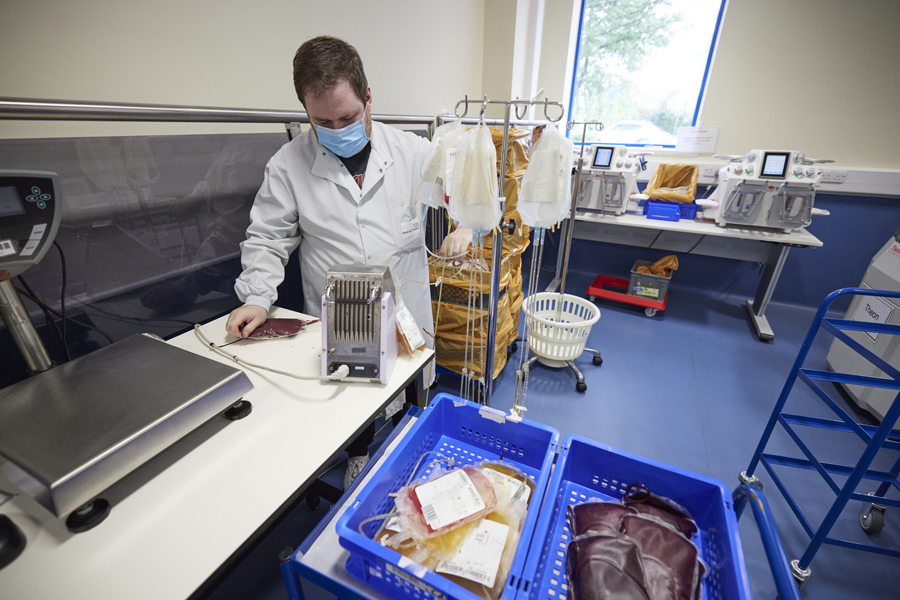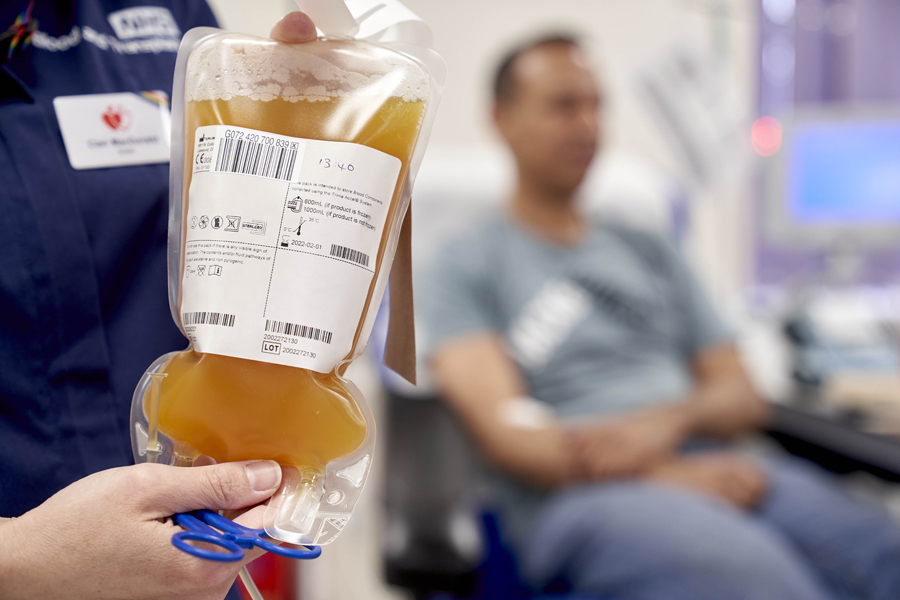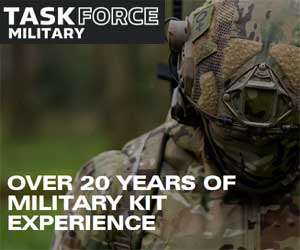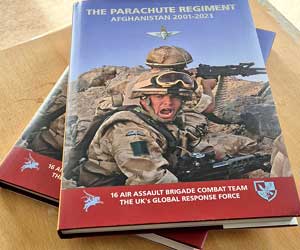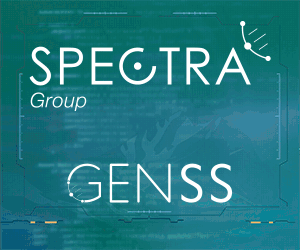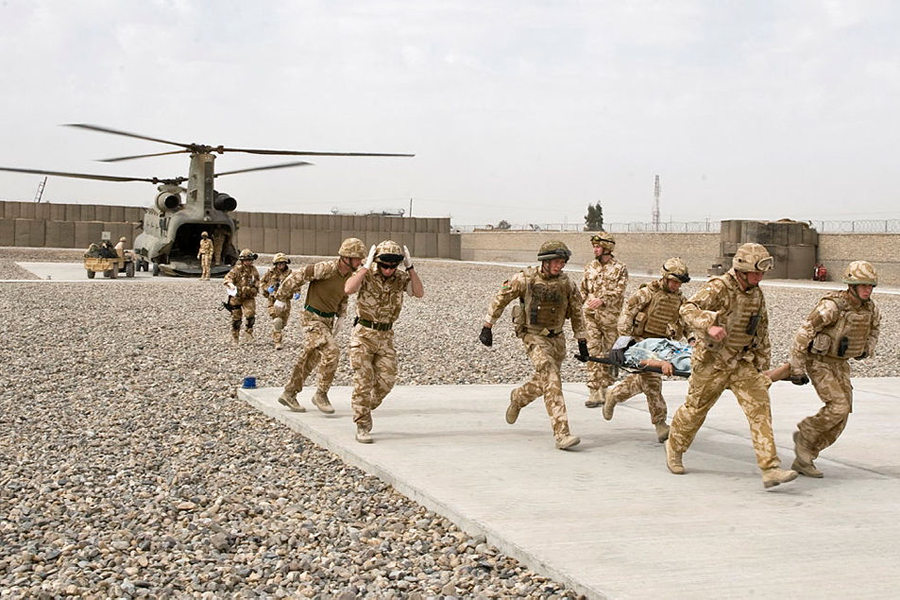
Blood Far Forward, the UK MoD dried blood plasma project to rapidly deliver blood and plasma to injured soldiers, has been launched.
~
News Release, Whitehall, 22 April 2023: An innovative project to rapidly deliver blood and plasma to injured soldiers is set to save lives in warzones.
The Ministry of Defence’s Blood Far Forward programme aims to deliver blood and plasma within 30 minutes of injury to soldiers in active warzones. Dried plasma – which helps the blood to clot – will decrease the Army’s reliance on frozen plasma which has to be thawed, taking longer to administer, and could be used by NHS Air Ambulances in the future.
Minister for Defence People, Veterans and Service Families, Dr Andrew Murrison said: “We’re always striving to improve our ability to treat trauma in the field, and catastrophic injuries that require acute medical attention in adverse environments, including the battlefield, are some of the most challenging.
“Treating people quickly and near to the point of injury is so often critical. That’s why dried plasma is such an important step forward.”
Health Minister Neil O’Brien said: “This project has the potential to save soldiers’ lives by treating significant blood loss with plasma.
“We are continuing our history of health innovation on the battlefield and investing in cutting-edge treatments by delivering plasma made in the UK to the front line.
“We work best when we’re working together and this project is the perfect example of the government, NHS Blood and Transplant, the Army and medical technologists collaborating to deliver transformative care to people when they need it.”
In the warzone most deaths occur within 60 minutes due to catastrophic injury, head injury or major haemorrhage. Early provision of plasma with red cells dramatically reduces mortality from major haemorrhage. Frozen plasma currently takes an average of 20 minutes to thaw and transporting it poses major logistical challenges, including requiring a freezer and specialist equipment. In contrast, dried plasma can be stored at room temperature and can be used by the medic when needed.
The Army has now funded NHS Blood and Transplant to find a way to manufacture dried plasma for use on military operations.
Major General Tim Hodgetts, Surgeon General and Master General of the Army Medical Services, said: “The Army’s leadership in developing a sovereign capability for dried plasma will save the lives of injured service personnel on operations, whilst securing our own national supply chain for what is a critical product in high international demand.”
Rebecca Cardigan, Head of NHS Blood and Transplant’s Component Development Laboratory, said: “Plasma saves lives every day by treating massive blood loss. We’re now researching and developing a world class dried plasma product which will not only save the lives of the Army’s battlefield casualties but could one day be used in civilian care where there are also logistical challenges, such as by Air Ambulance crews.”
At present, the Army sources dried plasma from NATO partners, which is subject to significant worldwide demand. Sourcing it from the UK will ensure the Army has adequate supply that is not reliant on other countries. The project will also enable single units of plasma to be produced without the need of complex facilities and placed in more convenient, plastic bags. The contract to deliver the project has been awarded to Velico Medical, whose remit is to provide the technology to produce dried plasma within the UK and gain regulatory approval.
Richard Meehan, President and CEO of Velico, said: “Spray-dried plasma is not only highly innovative, but it will change the course of transfusion medicine. We are excited and looking forward to work with our UK champions, in bringing our technology one step closer to changing lives in real-time.”
The cost of the project is £4.9 million. The project will be delivered over three years and will involve clinical trials in the UK. It is expected the resulting product will also benefit the NHS. The UK has a track record of innovation in the field of blood supplies to the battlefield. During World War Two, 300,000 units of dried plasma were manufactured in Cambridge and supplied most of the allies.
The Blood Far Forward programme is part of the work the Army’s Futures Directorate is doing to improve battlefield logistics. This includes the Army Warfighting Experiment and the Human Machine Teaming project which is bringing robotics and autonomous systems into the Army by 2025.
~


